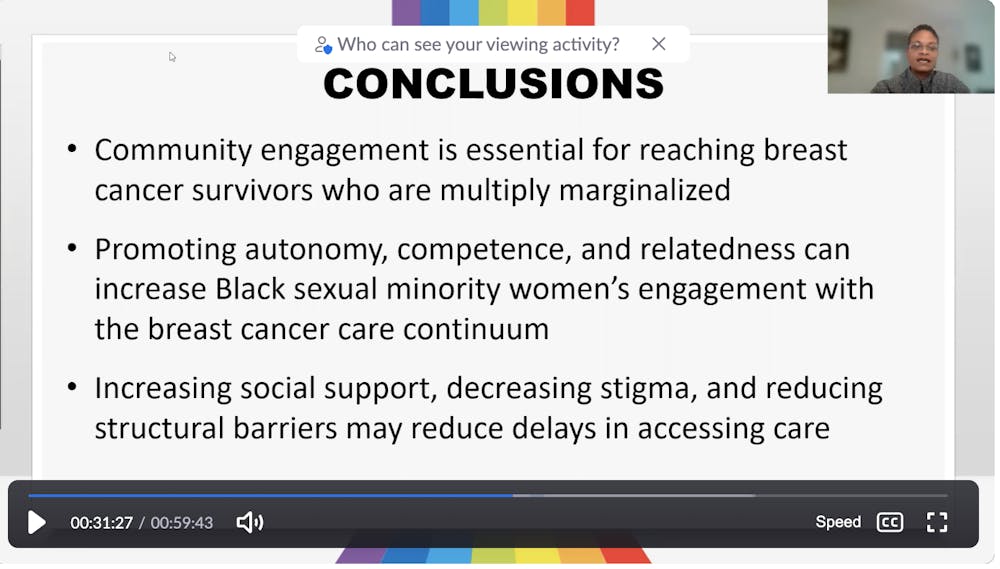UNC community members attended the "Advancing Health Equity Solutions at UNC" webinar Friday as part of the annual University Research Week.
During the session, leading campus health equity researchers showcased their work and spoke about their efforts to reduce social and racial inequities.
What happened?
- To kick off the event, Jeffrey Simms, interim associate dean for inclusive excellence at the Gillings School of Global Public Health, said research has been identified as one of the six focus areas in the school's Inclusive Excellence Action Plan.
- “Our overarching goals are to develop a strong anti-racist and health equity research portfolio within Gillings to also ensure that all researchers at Gillings regularly apply an equity lens to their research projects, with additional support systems in place for anti-racist and health equity scholars," Simms said.
- Simms said Gillings’ anti-racist research portfolio is one of the strongest across public health schools in the United States.
- “We will continue to prioritize support and funding for BIPOC faculty and students, and developing strong research portfolios, grants and publications,” Simms said.
- This year's Gillings Faculty Award for Excellence in Health Equity Research was presented to Aunchalee Palmquist, whose research focuses on the intersection of reproductive health, justice and human rights.
- This award recognizes excellence in research that "improved equitable outcomes" or resulted in “sustained reduction in inequities in a pressing public health issue.”
- During the pandemic, Palmquist contributed to qualitative assessments for the Maternal Telehealth Access Project.
- This project aimed to increase access to perinatal services and support via telehealth, increase capacity of providers to offer trauma informed perinatal care via telehealth and disseminate web-based information and public service announcements, according to Palmquist.
- “I seek to draw attention to racism, along with all of its related forms of discrimination and marginalization, as a fundamental root cause and driving factor of social injustice and health inequities and disparities,” Palmquist said.
- Tonia Poteat, associate professor of social medicine, shared her research, which focuses on breast cancer care delays at the intersection of race and sexual orientation.
- Poteat said her work was motivated by the inequities Black and sexual minority women face when being diagnosed with and treated for breast cancer.
- Poteat’s research found that community engagement is essential for reaching breast cancer survivors who are multiply marginalized. She said increasing social support, decreasing stigma and reducing structural barriers may reduce delays in accessing care.
- The last presenter was Taylor Hargrove, an assistant professor in the Department of Sociology, who spoke about her work, "Contextualizing Racialized Disparities in Health."
- Hargrove’s work seeks to address ongoing questions related to links between multiple disadvantaged social statuses and health inequalities at different stages of life.
- Her findings show that early life context significantly shapes later life outcomes in varying ways. She said Black Americans are not a monolith — meaning there is “significant heterogeneity within the Black American population in terms of experiences and inequality" — and that consequences of skin color are not static, but rather vary by racial context.
- “These findings make us think about how we can or should measure or assess race and racial inequality,” Hargrove said.
Layla Dowdy, director of the Office of Research Communications, told The Daily Tar Heel the online Research Week events would be recorded and posted at a later date for those who could not attend.



